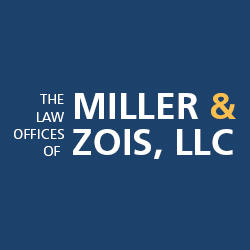The New Jersey Superior Court, Appellate Division, ruled last month in Dolores Kleiber v. State Farm Ins. Co. that the trial court properly entered summary judgment in favor of State Farm. This case involved in a lawsuit filed by a State Farm insured seeking a declaratory judgment that entitled the Plaintiff to additional optional uninsured motorist (UM) coverage because her insurer failed to offer her optional coverage when she moved from Florida to New Jersey shortly before a car collision she had in the fall of 1999 with an uninsured driver.
The New Jersey Superior Court, Appellate Division, ruled the trial court did not err in entering summary judgment in favor of an insurer in an insured’s action seeking a declaratory judgment that entitled her to additional optional uninsured motorist (UM) coverage because her insurer failed to offer her optional coverage when she moved from Florida to New Jersey.
Plaintiff’s attorney’s argument was a stretch, contending that because the policy was issued in Florida, State Farm offered her additional coverage because State Farm knew she would drive her car in New Jersey. She claimed that if they had informed her they required her to get insurance in New Jersey, she would have got $100,000 in optional UM coverage.
The Appellate Division disagreed, holding that because New Jersey only requires 15/30 coverage under N.J.S.A. 17:28-1.1(a), there was no evidence that Plaintiff would have purchased additional UM coverage.
In light of this undisputed evidence, we are not convinced that there is any factual support for plaintiff’s assertion that she would have elected to purchase UM coverage (in addition to the $ 15,000/$ 30,000 required by N.J.S.A. 17:28-1.1) if one of State Farm’s agents had informed her after she moved to New Jersey that she should obtain a New Jersey policy and provided her with that option. The evidence on this factual assertion is so “one-sided” that State Farm was entitled to prevail as a matter of law. Brill, supra, 142 N.J. at 540 (citing Liberty Lobby, supra, 477 U.S. at 252, 106 S. Ct. at 2512, 91 L. Ed. 2d at 214).
Maryland Law
 In 2004, the Maryland legislature passed a bill that requires an insurer to offer to the first-named insured under a motor vehicle liability policy “liability coverage for claims made by a family member in the same amount as the liability coverage for claims made by a nonfamily member under the policy or binder.” 2004 Maryland Laws, Chap. 127, Section 1.
In 2004, the Maryland legislature passed a bill that requires an insurer to offer to the first-named insured under a motor vehicle liability policy “liability coverage for claims made by a family member in the same amount as the liability coverage for claims made by a nonfamily member under the policy or binder.” 2004 Maryland Laws, Chap. 127, Section 1.
But this Maryland law does not require insurance companies to “offer” the insurance in the same sense the Plaintiff claims above. [2018 Update: it will soon require insurance companies to offer stacking uninsured motorist coverage.]
This definition of offer means “making available” as opposed to the affirmative burden Plaintiff’ sought to place on State Farm in this case. I think it is dangerous to place the burden on insurance companies to take affirmative action in offering coverage, particularly based on conversations the insured had with the insurance company. I think the Plaintiff’s claim that she would have bought coverage if they had offered it is speculative.
I think the court made the right ruling in this New Jersey case, and I suspect a Maryland court would make a similar ruling.
 Maryland Injury Law Center
Maryland Injury Law Center

